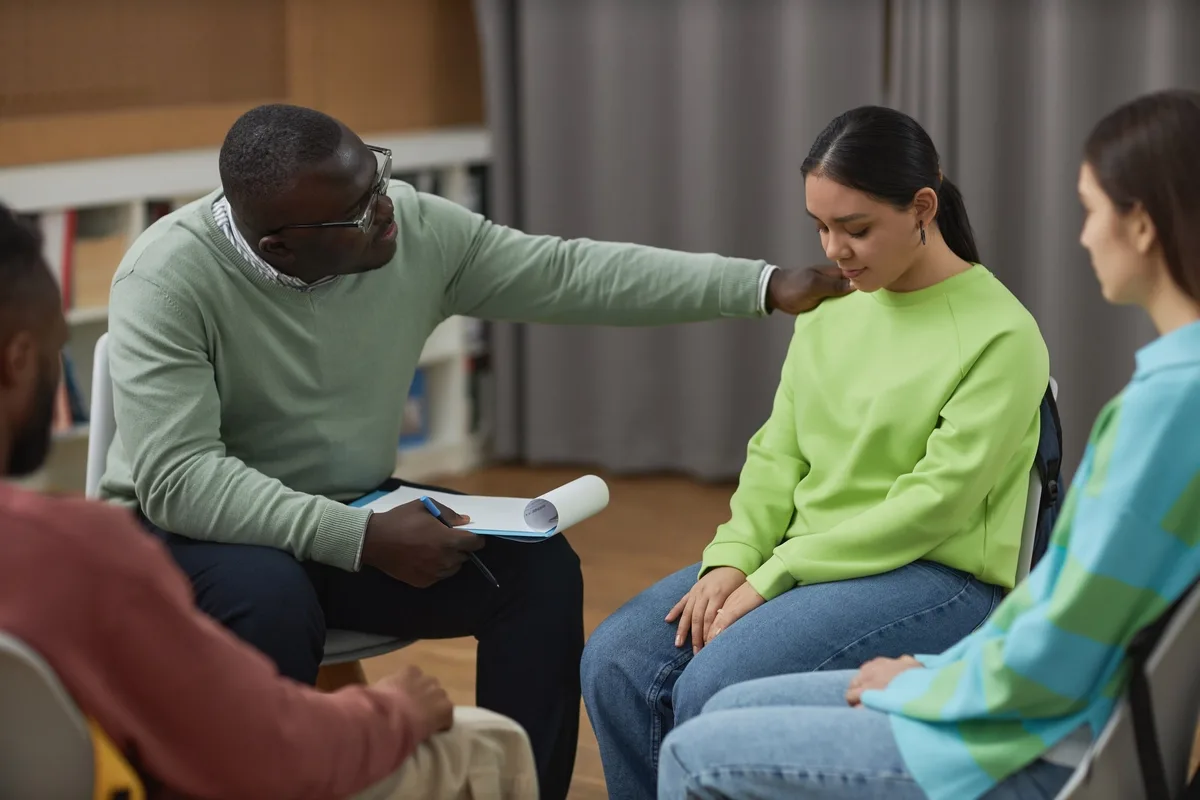24/7 Helpline:
(866) 899-221924/7 Helpline:
(866) 899-2219
Learn more about PTSD Treatment centers in Kirkwood
PTSD Treatment in Other Cities

Other Insurance Options

ComPsych

Optima

Premera

State Farm

Aetna

Carleon

Magellan

GEHA

United Health Care

Ceridian

Ambetter

UMR

BlueShield

Humana

Optum

BlueCross

AllWell

WellCare Health Plans

Amerigroup

Coventry Health Care

Northbound Treatment Services
Northbound Treatment Services is a drug and alcohol rehab located in Kirkwood, Missouri. They provid...








